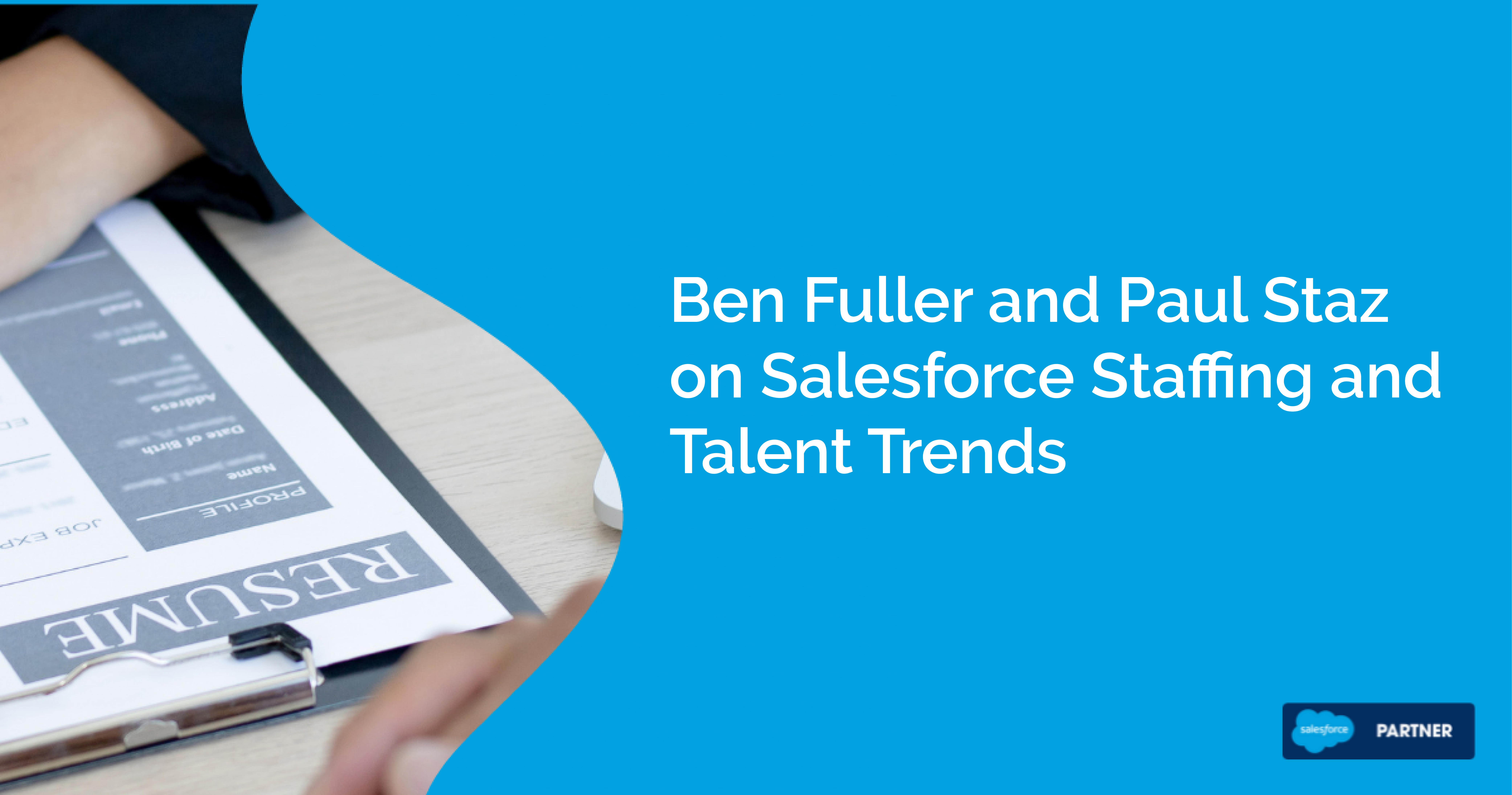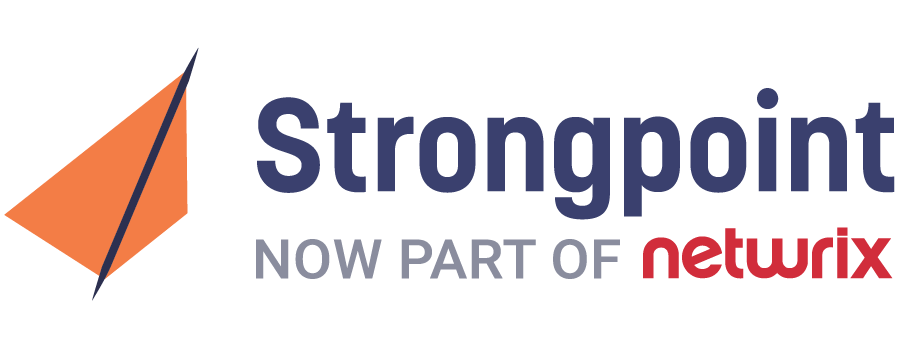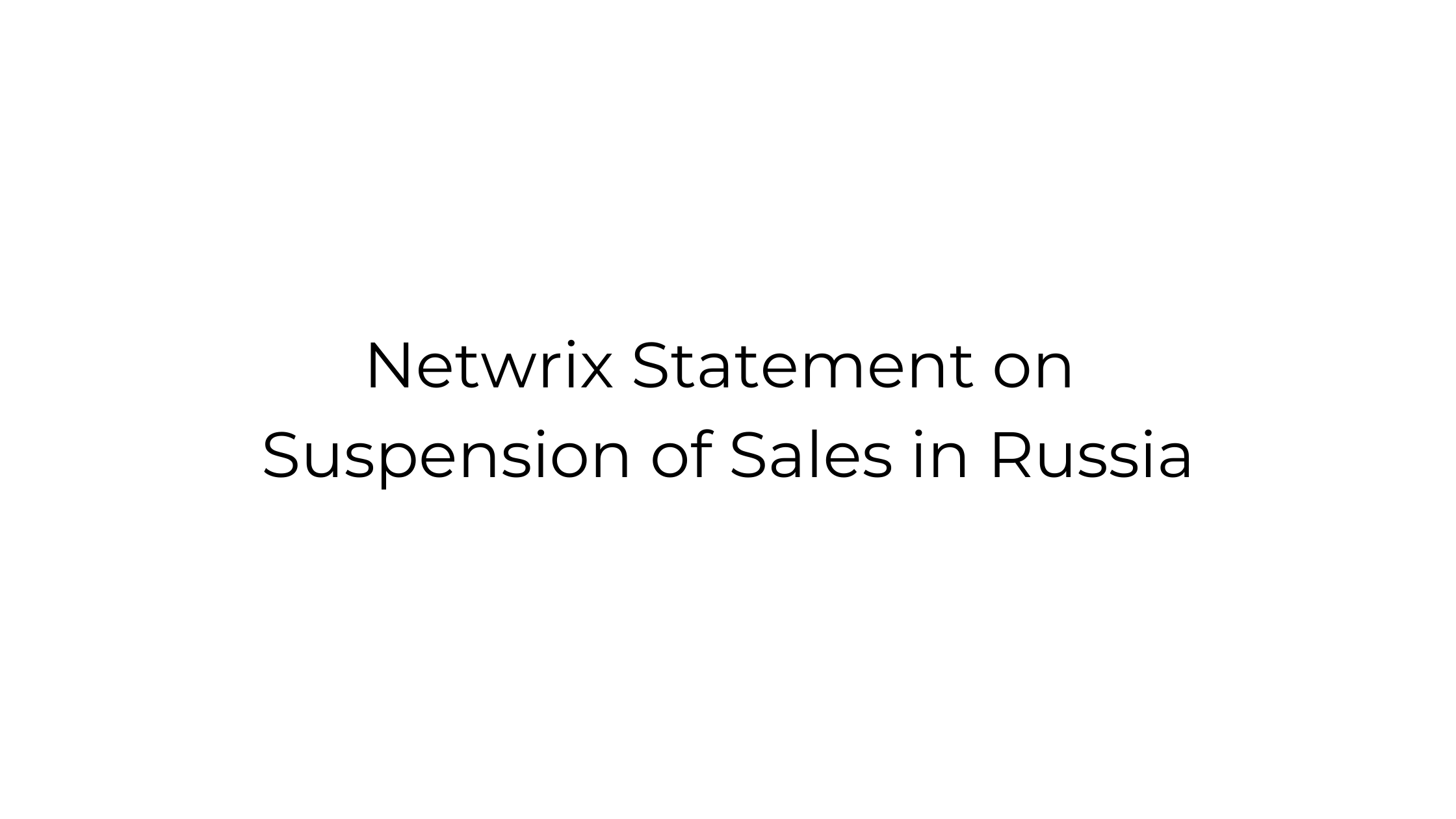Ben Fuller and Paul Staz on Salesforce Staffing and Talent Trends

Without the appropriate knowledge and guidance, Salesforce programs are more likely to accumulate technical debt, require future rework and never realize their full potential.
— 10K Advisors’ 2018 Salesforce Talent Ecosystem Report
In any tech ecosystem, explosive growth presents both opportunities and challenges. Salesforce is no exception. To better understand how Salesforce’s growth is affecting the organizations that use it, we sat down with two experts — Ben Fuller, CRO of Cloud Trailz and Manager of Strategic Systems at SaaSOptics, and our own Director of Sales, Paul Staz — for a wide-ranging discussion about staffing, talent and broader business development issues.
One often-noted effect of Salesforce’s growth is a widening skills gap. When there isn’t enough developer or admin talent in an organization, what are the downstream effects for users, adoption, results, etc.?
BF: In the short term, user requests begin to pile up, and some of them get missed. As a result, deployments get rushed and sub-par processes are implemented.
PS: In a best-case scenario, lack of internal expertise forces organizations to take a hard look at their projects and prioritize them as effectively as possible. It can also compel companies to bring in external partners, which can open the door to new ideas.
More often, however, it results in slower turnaround on projects, which negatively impacts overall Salesforce adoption and ROI. And when a company that is already stretched thin loses a key team member, the resulting loss of tribal knowledge can be a significant setback on the overall success of the platform.
The tech sector is notorious for its high turnover rate. How can businesses safeguard against individual employees having too much tribal knowledge?
Building a strong, easily accessible knowledge base is key.
PS: I think it's in a company's best interest to have employees understand their platform inside and out. Instead of trying to prevent tribal knowledge, you need to have ways to mitigate the risk posed by it.
BF: Building a strong, easily accessible knowledge base is key. A place to store both technical documentation and user training guides. Most recently I worked with a client to implement a custom knowledge base through some crafty custom objects and a genius use of Google Docs.
PS: At Strongpoint, we stress the importance of having system documentation and formalized release and change management processes that are supported by automation. If you have those in place, a new hire will have a much shorter learning curve, which really is what you're looking for.
What are you seeing on the ground when it comes to how different industries use Salesforce, and where the skills gaps are?
BF: I think most of the skills gaps you see are around industry knowledge and less about Salesforce-ing ability. That's why admins tend to stick to their respective cloud — a strong industry background allows an admin to build stronger processes.
PS: At the same time, we’re likely to see more industry- and business-specific gaps develop as Salesforce releases more vertical offerings, such as the recent Higher Ed. Cloud, Manufacturing Cloud and Lightning Order Management. These introduce a requirement for a slightly different skillset, which will open doors for new opportunities for Salesforce partners and consultants to prosper.
Passing certifications is one thing, but it’s no substitute for on-the-ground experience.
What do you foresee as the most in-demand Salesforce skill in the coming years?
BF: Experience of any kind. We're hitting a point in the ecosystem where everyone is chasing their Technical Architect certification (CTA). Passing certifications is one thing, but it’s no substitute for on-the-ground experience. Being able to act on those skills is key.
PS: I think leaders need to increase their knowledge of the platform. Revenue and Sales Ops leaders need to be able to have intelligent, informed conversations with their teams. As mentioned above, as new vertical applications are released, new people will need to learn Salesforce. I think that's super important for alignment and project or platform ROI.
What would you say to a CIO or other exec who wants to be proactive about making the most of their SFDC team?
PS: I think change and innovation are at the core of any successful Salesforce platform. They encourage positive work environments for teams, increase end-user satisfaction, and help drive adoption and ROI.
BF: Involve your team in discussions, allow them to be creative, let them be heard. If you won't, someone else will.


